Opinion
Sanwo-Olu : Celebrating A Kind-Hearted Achiever at 56
Published
3 years agoon
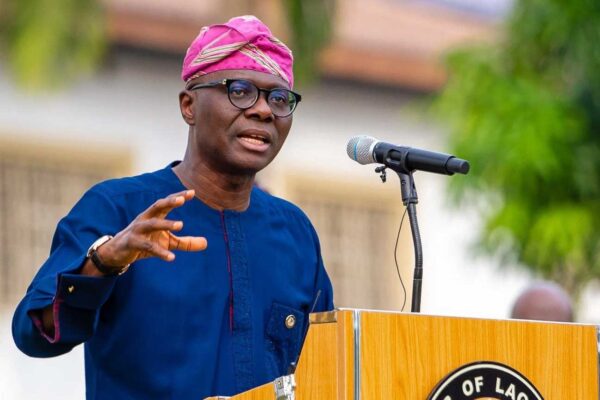
By Gboyega Akosile
It is common in our clime for praise singers and vuvuzela blowers to be at their best performances, increasing the tempo of their art to crescendo on a day like this for Governors, Presidents and people of high political positions. One can’t blame them. It is their way of validation. The dramatis personae often times are not confused even though the situation may present a blurry image.
I have listened to and read various things said and written about Mr. Babajide Sanwo-Olu, the Governor of Lagos State. Most of them have dwelled on how well he has performed as governor in two years under very harsh economic challenges. Most of the accolades have come from the successful management of the Covid-19 pandemic by Governor Sanwo-Olu, who saved Nigeria from what could have resulted in monumental catastrophe. Like a gallant soldier, Sanwo-Olu rose up to the occasion and gave Covid-19 a good fight. This feat ultimately left no one in doubt as to Governor Sanwo-Olu’s managerial and administrative skills.
No one ever prepares enough for disasters. The nation woke up in September 2020 to the legitimate agitation against police brutality by the Nigerian youth, tagged EndSARS protest. The protest, aimed at drawing attention to human rights abuses being perpetrated by the disbanded Special Anti-Robbery Squad (SARS), was later hijacked by hoodlums and criminal elements. Lagos State was the epicentre of the demonstration. The unfortunate incidents of October 20, 2020 led to a coordinated destruction of public and private assets in Lagos. Again, Governor Sanwo-Olu rose up to the challenge, worked with the citizens and stakeholders to bring about peaceful resolution. Today, Lagos is the only State in the federation that has fulfilled the demands brought forth by the EndSARS protesters.
Taking over the affairs of Lagos at a time when the State was challenged, Sanwo-Olu has proved to the world that governance is not rocket science. His persuasive management approach has helped stabilise the State, taking it out of the near dilapidation back onto her progressive trajectory without hurting citizens -young, old, rich or poor.
Kindness comes naturally for this Governor. The first touchpoint for me was during the electioneering. On a particular day, we had worked till late in the evening and it was time for everyone to retire to bed. I was bent on going home but the then aspirant, Babajide Sanwo-Olu insisted that I stayed over at a nearby hotel. I, nevertheless, went home that night but not without thinking of his caring gesture that bought me over completely.
Another very remarkable scenario played out in October 2019. This time, Mr. Sanwo-Olu had already secured the governorship ticket of the APC. He asked me to ride with him in his vehicle for a certain review. Just as we were making a turn from Mobolaji Bank-Anthony road into GRA, our pilot/security vehicle became a bit reckless, Mr. Sanwo-Olu was quick to call them to order. He complained bitterly about such behaviour saying everyone deserved some respect. He has entrenched the same tradition in his convoy even as Governor.
With the two incidents, I saw in him a man who genuinely cared about the welfare of the people around him. In fact, three years after, Governor Sanwo-Olu is a better version of the person I saw in him at that time. He cares completely about the welfare of the residents and this is why the Sanwo-Olu touch is felt in every facet of Lagos life -Transportation and Traffic management, Health and Environment, Education and Technology and Making Lagos a 21st-century economy as well as in Security and Governance.
Without any iota of doubt, the 56th birthday of Governor Sanwo-Olu is worth celebrating considering his personal achievements as well as meaningful impacts in private and public sectors.
Born on June 25, 1965, Governor Sanwo-Olu has been part of Lagos State’s progressive trajectory in the past 18 years, serving in the Executive cabinet of the three previous governors. Perhaps this accounts for the reason he takes governance so simple as he does. Governor Sanwo-Olu ranks top among the rest in many areas of human endeavours.
Characteristic of great leaders whose sole interest is the welfare of their people, Governor Sanwo-Olu keeps vigil almost every day for Lagosians to have a sound sleep. He’s perhaps unaware that sometimes some of us around him don’t look forward to the weekly Governor’s itinerary. The sight of the itinerary can raise one’s blood pressure but it is a regular routine for Governor Sanwo-Olu; you signed up for the job and you must do it!
Mr. Governor would call you in the middle of the night and ask whether you are sleeping. I once answered him: “sir, it’s 3 am in the morning” and he simply laughed!
Governor Sanwo-Olu doesn’t ever delay anything-never! He treats every matter-personal or State with a dispatch except those that require further consultations or deliberations. Even those ones he handles immediately either by setting meetings or committees. He recognises government bureaucracies and red tapes but has a way of cleverly ensuring that those factors do not slow down the pace of work or intended deliverables. I have seen this at very close range in the last three years of working with him. Sanwo-Olu’s management skills and administrative acumen coupled with his personal attributes of humility and humanity have worked for him. This is why in just 757 days in office, under very difficult conditions occasioned by covid-19 pandemic and the unfortunate EndSARS protest, Governor Sanwo-Olu recorded numerous achievements across the THEMES agenda.
A tested and trusted professional, management expert and consummate administrator, Sanwo-Olu has made life more in abundance for Lagosians through the delivery of his campaign promises. During the electioneering, I remember him saying two things, which almost became a cliché: “let’s under promise and over deliver”, “Governance is a marathon and not a sprint”. These sayings are just making sense to me, and they make me to wonder where he gets his wisdom from. Most critics have forgotten that one major election promise of Governor Babajide Sanwo-Olu is continuity. He told Lagos electorate during the electioneering that his administration would govern from where his predecessors had stopped. This is exactly what he has done.
The near abandoned LagosHoms in Igando was completed and commissioned, the Agege Pen Cinema bridge, which was roughly at 19 to 20% foundation level when he assumed office in May 2019 had been completed, with additional roads network, the Igbogbo Ikorodu housing project, the BRF Housing Estate, Iponrin, Lagos Homs in Lekki, several roads across the metropolis started by the immediate past administration have all been completed and commissioned.
For Governor Sanwo-Olu, it does not matter who started what project. What’s important is the completion of those projects for the greatest good of the people. It is all about the people of Lagos State.
In Sanwo-Olu, I see a man who is not satisfied with his level of yesterday and wants to do more today. He always desires to do more. And these burning desires drive him to deliver more for the people. He often says to us that “you must look good today, tomorrow and always”. He dislikes you giving excuses for failures even though he agrees that honest errors could be made sometimes.
Governor Sanwo-Olu’s
leadership skill was tested by COVID-19. Expectedly, Lagos was the epicenter of the pandemic in Nigeria in February 2020. Tackling the health disaster head-on, the Governor saved Lagos and by extension the entire country from a major calamity.
Apart from the COVID-19 pandemic, Lagos was hit by massive destruction of properties worth billions of naira in the aftermath of EndSARS protests hijacked by hoodlums. Despite the challenges, Governor Sanwo-Olu took the bull by the horns to put Lagos on the path of progress through the Lagos Rebuild initiative.
Looking at the efforts devoted to achieving the first pillar of the THEMES agenda, which is Traffic management and transportation, the Babajide Sanwo-Olu administration is closer than ever in giving Lagos a reliable intermodal system of transportation with heavy investment in waterways, aggressive pursuit of the light rail projects as well as road transportation to make life easy for Lagosians. The State Government has also reduced traffic congestion in some critical parts of Lagos with continuous road infrastructure, junction improvements and opening up more communities with new link roads and bridges.
More than 51 major infrastructure projects such as the Pen-Cinema fly over, ramp and road networks, Lagos-Ogun Boundary roads Phase II, Lekki Oniru Traffic Circulation Projects, a network of roads in Ojokoro, Somolu and Ikoyi, among others. The administration also constructed and rehabilitated 301 inner roads in the 20 Local Government Areas and 37 Local Council Development Areas (LCDAs). It also commissioned the Oshodi-Abule Egba BRT lane. The Eleko junction to Epe concrete pavement road construction is ongoing. These road projects are executed to bring succour to the people of Lagos.
Governor Sanwo-Olu has also made a significant impact in the lives of millions of Lagosians in the areas of Health and Environment. He believes that nothing should be spared to give Lagosians quality health care and that’s why he has made a lot of intervention in the health sector.
Apart from the comprehensive renovation of medical facilities at various Health Centres and General Hospitals in the State, the State is also developing new facilities, such as the New Massey Children Hospital, New General Hospital, Ojo and a Rehabilitation and Mental Health facility in Ketu Ejinrin. The State Government is also building a 300-bed Isolation Centre and a Research Institute at IDH, Yaba. It has also improved maternal and child health with the provision of the Mother and Child Centres (MCCs) in Eti-Osa, Igando, Badagry and Epe. In the area of Environment, Babajide Sanwo-Olu administration within two years in office has invested significantly in the waste collection capacity of LAWMA as well as significant improvement in drainage management and maintenance.
Sanwo-Olu’s passion for quality education is a driving force behind his numerous interventions in that sector. His administration has completed more than 1,097 school projects in just two years, built six secondary schools, provided over 100,000 tables and chairs, provided 2,000 hostel beds in model schools and recruited over 2,000 teachers for public schools. It also introduced EKO EXCEL – an education reform programme targeted at developing highly skilled teachers through training, support and motivation, which has reached about 1,009 schools, 13,000 teachers and 450,000 pupils.
Governor Sanwo-Olu is not paying lip service to security and governance in the State as his administration has worked tirelessly to ensure that Lagos is safe and secure for residents. Today, security agencies in Lagos State can boast of modern crime fighting equipment. On Thursday, June 10, President Muhammadu Buhari joined Governor Sanwo-Olu to officially handover patrol vehicles and security equipment to security agencies in Lagos State. The equipment were; 150 Double Cabin Vehicles, 30 Saloon Patrol Vehicles, 1,000 Ballistic Vests, 1,000 Ballistic Helmets, 1,000 Handheld Police Radios/Walkie Talkies, 100 Security Patrol Bikes, two Armored Personnel Carriers (APCs), four High Capacity Troop Carriers, two Anti-Riot Water Cannon Vehicles and Office/Command Furniture and other Ancillary Support Resources.
Despite delivering on his campaign promises, Governor Sanwo-Olu is not looking back as he is marching on toward “Greater Lagos.” During his State broadcast on May 27, he said his administration is working tirelessly to deliver the Fourth Mainland Bridge, Imota Rice mill, Integrated Mass Transit System and other infrastructure to Lagosians within the next two years.
He said completing the projects within the next 24 months will bring absolute transformation to the livelihood and the economy of Lagos State.
Going by his track records and achievements in office, Babajide Sanwo-Olu at 56 stands tall among contemporary African leaders. He also remains a model to his generation.
Happy 56th Birthday to an achiever!
Akosile is the Chief Press Secretary to the Lagos State Governor, Mr. Babajide Sanwo-Olu
You may like
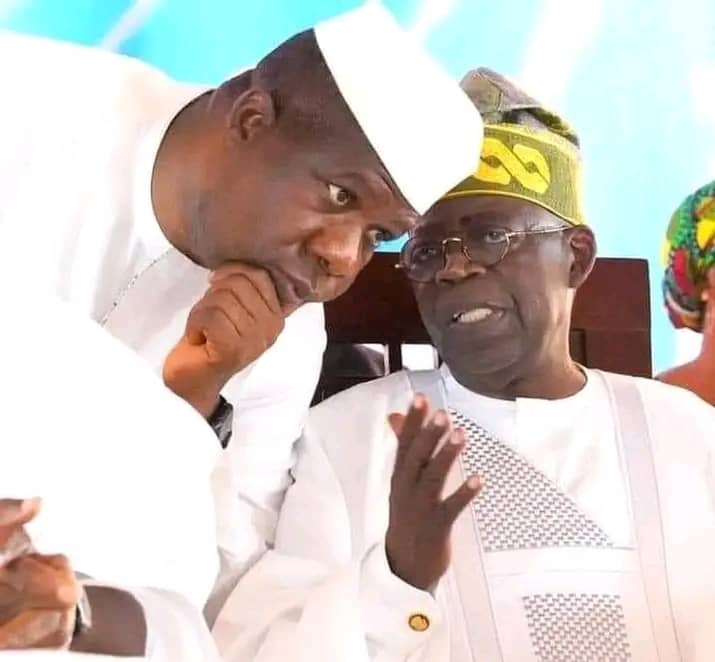
By Senator Opeyemi Bamidele, CON
Today, I celebrate a timeless doyen of democracy and an astute mentor of many leaders, President Bola Ahmed Tinubu, GCFR. By global standards, Asiwaju is truly a man of the people and the visionary of our times, who devoted his life to pursuing the greatest goods to the greatest number of people. This has been the core of his heart and life from when he was a boardroom guru in the 1980s to when he joined partisan politics in the 1990s.
Born on March 29, 1952, Asiwaju’s foray into politics in 1991 was never a mistake, though it came with a huge sacrifice that cost dearly. As a Senator of the Federal Republic of Nigeria, I celebrate how Asiwaju firmly stood with the people rather than dining with the military oligarchy that annulled the outcome of the June 12, 1993 presidential election ostensibly won by Chief M.K.O Abiola (now of blessed memory), an annulment that set our fatherland back to the pre-colonial era.
I also celebrate how Asiwaju teamed up with the progressives to establish the National Democratic Coalition, a movement of likeminds and progressives that fiercely challenged the regime of the late tyrant, General Sani Abacha; mobilised support for the restoration of democracy to our fatherland and campaigned for the recognition of Chief M.K.O Abiola as the winner of the June 12 presidential election. And this conviction and pursuit eventually earned him exile from the land of his birth. Yet, he was undaunted in his quest to see his fatherland liberated from the era of locusts that pitched us against the comity of nations.
I celebrate how Asiwaju returned to Nigeria in 1998 when the darkest era of the late tyrant finally folded into the abyss of extinction after fighting doggedly on the side of the people. The end of the dark era culminated in his election as the third civilian governor of Lagos State in January 1999. Though faced with diverse heinous challenges at the inception, Asiwaju came out strong and victorious, setting Lagos on the path of irreversible progress, reforming the coastal state to a globally competitive smart city and turning it to a constant destination of strategic investment. And the world can no more look away from Nigeria just because of the pro-people reforms he carried out in Lagos.
Asiwaju’s quest for the greatest goods for the greatest number of people pushed him to national politics, the kind of venture that consumed the nationalists and patriots who lived before him. At different times, he challenged the traditional forces that held our fatherland down. He first fought for the soul of our fatherland on the platform of the defunct Action Congress, and it did not entirely produce an enviable outcome. He later switched to the Action Congress of Nigeria, and banished the regressive elements from the six states of the South-west. Full of hope, Asiwaju stressed forth his hands across Benue and Niger, and together, they rescued Nigeria from the hands of the regressives.
At 72, as the President of Nigeria, Asiwaju has brought rare conviction and passion to the business of public governance, courageously daring the forces of regression and tirelessly pursuing the interests of over 227 million regardless of their faith, ideology and race. The task is truly daunting, but the victory is undoubted. Only within 10 months of Asiwaju’s ascendancy to the presidency, we have started witnessing the dawning of economic restoration and the ray of political renaissance under his watch.
As I nostalgically reflect on the journey so far, I remember his labour and toiling for our fatherland, even when most misunderstood. I remember his undying passion to lead the path to a greater nation, even when the future looks so bleak and always unsure. I remember his utter commitment to a movement of patriots and progressives eternally sworn to rescue our fatherland from the claws of the ageless vultures and the blood-thirst beaks of mindless hawks that always seek to feast on the flesh of Nigeria. Despite their ferocity, he eventually subdued the enemies of our souls, even right in the midst of inferno they set ablaze for us all.
That is the reality in our fatherland today. Asiwaju is at the forefront of that reality. And we are all witnesses to this history, even from its making to its maturation. Now, as he graciously turns 72 on this auspicious day, I cannot, but earnestly pray God grants him longer life and inner strength to steadily paddle the ship of our nation to the coast of endless ecstasy.
Heartiest 72nd Birthday, my leader and mentor.
- Bamidele, Leader of the 10th Senate, writes from Abuja
Opinion
Chronicling Deputy Senate President Barau’s 100 days of parliamentary excellence
Published
7 months agoon
September 18, 2023By
News Editor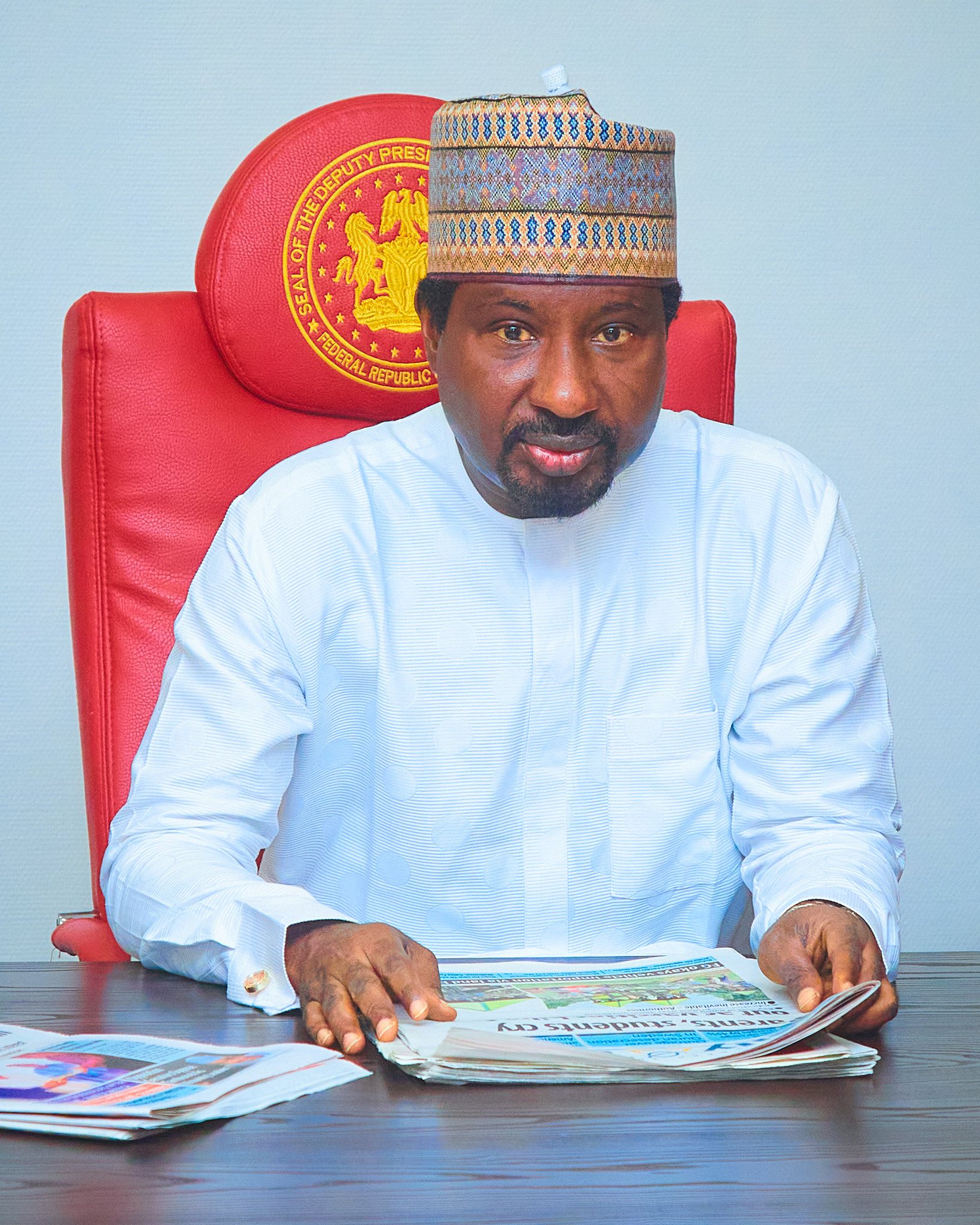
By Ismail Mudashir
Tomorrow, Wednesday, September 20, 2023, the 10th Senate will mark its first 100 days following its inauguration on June 13, this year.
The inauguration of the parliament followed President Bola Ahmed Tinubu’s proclamation, via a letter to the Clerk to the National Assembly, Sani Magaji Tambawal, in line with Section 64(3) of the 1999 Constitution.
The first duty of the senators was the election of the presiding officers – the President of the Senate and the Deputy Senate President. After a keen contest, Senator Godswill Akpabio, from Akwa Ibom State, emerged as the President of the Senate, defeating Senator Abdulaziz Yari, a former governor of Zamfara State.
Apparently, because of his rare personality traits, Senator Barau I. Jibrin, a fourth timer at the National Assembly (three times in the Senate – 2015 to date and once in the House of Representatives – 1999 -2003) emerged as the Deputy President of the Senate unopposed as all his colleagues threw their weight behind him.
Three weeks after the emergence of the two presiding officers, eight principal officers were named, thus the leadership of the 10th Senate was duly constituted. With the constitution of the leadership, the lawmakers got the parliamentary work started as urged by the President of the Senate, Senator Akpabio, in his speech on July 4, 2023, titled, “Let’s get the work started.”
On July 6, Senator Barau, for the first time, presided over the plenary session. During the session, five motions were moved including the one on Mallam Aminu Kano International Airport, Kano.
After the July 6 session which attracted applause from across the Red Chamber and beyond, Senator Barau had presided over the plenary on other occasions in the absence of the President of the Senate in the last 100 days.
Among the critical motions sponsored by the Deputy President of the Senate during the period under review was the one on the poor state of road infrastructure and the menace of gully erosion in the country. Also to his credit was a motion on the emergence of President Tinubu as the Chairman of the Economic Community of West African States (ECOWAS).
Four bills of the Deputy President of the Senate, including the one on the creation of a development commission to fast-track the development of the country, have been introduced at the Red Chamber.
* Balanced appointments
Recognizing the heterogeneous nature of the country, the Deputy Senate President selected his seven key appointees from across the country – four were drawn from Kano State – two from the southern part of the country – Oyo and Imo states, and one from Kwara State – North Central geopolitical zone.
The appointees who hail from Kano State include the Chief of Staff, Professor Muhammad Ibn Abdullahi; the Special Adviser (Policy & Monitoring), Professor Bashir Muhammad Fagge; the Special Adviser (Political), Yusuf Aliyu Tumfafi and the Special Assistant (Media & Publicity), Shitu Madaki Kunchi.
The Special Adviser (Media & Publicity), Ismail Mudashir, hails from Kwara State; the Special Adviser (Special Duties), Idris Abiola Ajimobi, Oyo State; and the Special Adviser (Administration), Mrs. Ngozi Ndawi Nkemdirim, from Imo State.
Commendations have followed what has been described by lawmakers, media practitioners, civil society organisations, and other stakeholders in the country as balanced appointments.
* Constituents driven representation
For Senator Barau, his representation has been constituents and pro-masses driven. Hence the unfettered access he grants to people from Kano North, Kano State, and beyond; the old, young, rich, and poor; APC members and members of other parties.
For instance, in August, he instituted a scholarship programme through which hundreds of tertiary institution students from Kano North Senatorial District were given N50,000 each. The programme was flagged off at Bayero University Kano (BUK).
Before the scholarship scheme, the Deputy President of the Senate had paid WAEC and NECO fees for hundreds of secondary school students.
To boost agriculture in the state, Senator Barau also distributed fertiliser to farmers across the 44 local government areas of the state.
According to beneficiaries, this initiative would enhance their output and contribute towards attaining food security in the state and country.
On September 6, the people of Rimindako community in Bagwai LGA of Kano State, through a human rights activist, Barrister Muhammad Zubair, lauded the Deputy President of the Senate over the construction of Yasanya bridge and access road in their community.
· Visits Abuja Industrial Park
On the invitation of the Zeberced Group, the Deputy President of the Senate was at the Abuja Industrial Park located in the Idu Industrial District on September 4. Sitting on 245 hectares of land, the park will house 200 factories, a helipad, a train station, a lorry park, a bank, a recycling station and a power plant, among others when completed.
The park is an initiative of the Zeberced Group, jointly founded by Adil Aydin Kurt and Cemal Kurt from Turkey. The company’s Managing Director, Aidl Aydin Kurt, conducted Senator Barau around the project. Kurt told his visitor that the project when completed will provide 40,000 direct jobs to Nigerians.
Moved by the 40,000 jobs to be created , Senator Barau said the parliament would provide the necessary legislative support to the company, saying the project was in line with the commitment of the federal government to address unemployment, boost and diversify the country’s economy.
* Keeping parliament alive during recess
Even with the annual recess embarked upon by the parliament on August 7, the office of the Deputy President of the Senate has been active, five days a week (Mondays – Fridays), with Senator Barau performing official engagements. During the period, he met with ministers, heads of agencies, civil society/pressure groups including the promoters of Tiga and Gari states, clerics, and party leaders, among others.
During their visit, stakeholders of the All Progressives Congress (APC) in Kano North Senatorial District, led by Hon. Sani Mukaddas, hailed Senator Barau, describing him as an exceptional lawmaker and leader.
In the same vein, a forum of former zonal women leaders of the APC has thumped up Senator Barau, saying he is not discriminatory in his dealings with all.
“Continue to support us, we won’t disappoint you, Insha Allah,’’ were the words of the Deputy President of the Senate to those who visited him. He also assured them of the commitment of the parliament to support the executive with the necessary legislation to address the challenges facing the nation.
Mudashir is the Special Adviser on Media and Publicity to the Deputy President of the Senate
Opinion
Ahmad Lawan: The Doyen of Nigerian Parliament @64
Published
1 year agoon
January 12, 2023By
News Editor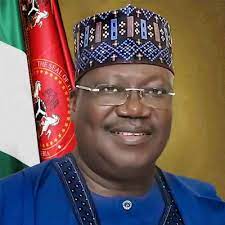
By Ola Awoniyi
Ahmad Ibrahim Lawan, the Distinguished Senator representing Yobe North Senatorial District of Yobe State, turns 64 on 12th January, 2023. Within those almost six and a half decades, he has seen it all, especially in public service. In just about five months from now, he will conclude his tenure as the 14th President of the Nigerian Senate and sixth consecutive session in the National Assembly.
Lawan has been around for so long in Abuja that it is easy to assume he was never elsewhere. Yet, his earliest work experience was in the academia, and it lasted long enough for him to bag a Doctorate degree in Remote Sensing and Geographic Information System (GIS) before yielding to the pull of partisan politics in 1998.
In that calling, Lawan has clearly made his mark. And not just because he attained the dizzying height of third in the order of succession. People see politics as a dirty game. But Ahmad Lawan does not see it that way. For him, politics should not change the core beliefs and principles of an individual. Service to the people should be the driving objective of partisan political practice. And whether in politics or elsewhere, Lawan believes one’s yes must mean yes.
This has, in no small measure, paid off for Lawan in his almost 25 years in politics, 24 of which has been as a federal lawmaker. A member of the pioneer class of the National Assembly of the Fourth Republic, he was first elected in 1999 to the House of Representatives from the Bade/Jakusko Federal Constituency of Yobe State. He was re-elected to the House in 2003. But in 2007, Lawan crossed over from the Green Chamber to the Red Chamber as the Senator for the Yobe North District. He was re-elected to that Senate seat in 2011, 2015 and 2019.
If you know what it takes to win elections in Nigeria, you would appreciate that what multiple winners like Lawan have accomplished is no small feat. His numerous reelections underscore that his constituents appreciate the quality of representation that he has been providing to them in Yobe North District.
The life of a politician is not all gloss as it may sometimes seem. Election is not a tea party. A parliamentarian in particular needs very hard work to get a return ticket from the party. In Parliament, getting the support of colleagues for motions and bills requires deep knowledge and passion for the subject; focus and temperament. It is actually an extra burden if you are a Presiding Officer in parliament. Success or failure at every stage has its implications.
No wonder, Mallam Nasir El Rufai, the outspoken Governor of Kaduna State, at a recent public function in Abuja, said he has no intention of seeking a seat in the National Assembly like many former governors now do.
Speaking as chairman at the second edition of the “Distinguished Parliamentarian Lecture” organised by the National Institute for Legislative and Democratic Studies(NILDS): the governor said:
“The Legislature is one branch of government I know I can never function. The hardwork needed to convince people to support even your motion is something some of us have no patience for. You know management in the Executive is very straightforward. It is very hierarchical and once you are a governor, your word is almost law. But in the Legislature, everybody is equal and there is no management that is more difficult than managing your equals. I don’t envy Mr Speaker and the Senate President at all because their job perhaps is the hardest job in this country. Managing equals is difficult.”
Despite the difficulties, Ahmad Ibrahim Lawan has shone at the National Assembly since its inauguration in 1999. Lawan is today one of only two lawmakers remaining in the National Assembly from the 1999 set. He has also attained the most enviable of heights in his many years of service at Parliament, becoming “first among equals” in the Upper Chamber, which is the very pinnacle of the hierarchy in the parliament of any democratic society. That makes him the Doyen of the Nigerian Parliament.
In his three and a half years as the 14th President of the Senate and Chairman of the ninth National Assembly, he has set a high standard for whoever will be his successors. He has demonstrated the value of parliamentary experience as a prerequisite for election as a presiding officer for the Upper Chamber.
His experience of more than two decades in parliament has made him an encyclopedia on the inner workings of the National Assembly. Lawan has the standing rules at the tip of his fingers. When any of his colleagues raises a Point of Order, he would ask the colleague to specify which order. But before the text is read out, Lawan already knows the provision and its applicability.
As “first among equals,” Lawan knows the importance of fairness in the conduct of the affairs in plenary. Even though the majority will always have its way, the minority must have its say as well.
Lawan knows the value of a bipartisan Legislature. Perhaps the most difficult aspect of the job of a Presiding Officer is to know when to hit the gavel and when not to. As one of Lawan’s aides, I heard him say, many at times, that he had no choice but to hit the gavel or rule in favour of a majority voice vote even when he held a different view to the voice vote. That is democracy.
Lawan also knows the value of promoting harmony between the Legislature and other arms of government, particularly the Executive, without compromising the independence of the Legislature.
Lawan has seen it all in Parliament. From my vintage point of observation, I quickly realized that he did not become the 14th President of the Senate and Chairman of the Ninth National Assembly by happenstance. It was the result of long years of self-preparedness, self-discipline, consistency, perseverance and tenacity of purpose.
Those attributes are essential for success in any endeavour and Lawan obviously learned that very early. And wherever he goes next, they will accompany him and pave the way for more success.
As I wish the Sardaunan Bade a happy 64th birthday, I also wish him more success in his future endeavours.
***Awoniyi is Special Adviser on Media to Senate President
Latest News
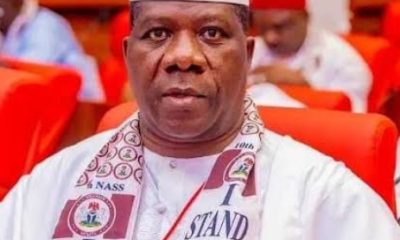

EID El Fitr: Let’s Embrace Ramadan Lessons – Senator Bamidele
ShareLeader of the Senate, Senator Michael Opeyemi Bamidele has rejoiced with the Muslim faithful as they celebrate Eid-el-Fitr nationwide. Senator...


Easter: Senate Leader Calls for Emulation of Sacrificial Spirit of Jesus Christ.
ShareAs Nigerians join the rest of the world to celebrate another Easter in remembrance of the death and resurrection of...
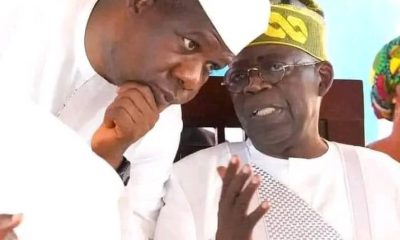

Ode To People’s President
ShareBy Senator Opeyemi Bamidele, CON Today, I celebrate a timeless doyen of democracy and an astute mentor of many leaders,...


Constituency Projects: Oyebanji Joins Senate Leader On Tour Of Project Sites in Ekiti
Share Ekiti State Governor, Biodun Oyebanji has commended the members of the State Caucus in the National Assembly for their...


Infrastructure: FG Approves Dualisation of Ado-Ikare Road – Bamidele
ShareAfter three decades of outright neglect, the Leader of the Senate, Senator Opeyemi Bamidele has revealed that the federal government...
